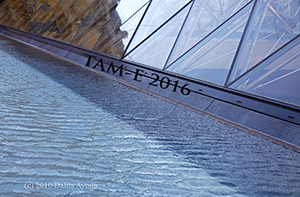In a binary approach to aspect such as (Smith 1991)'s two-component theory, situation aspect combines with viewpoint aspect to compute the aspectual composition of sentences. Two important notions with respect to event singularisation are telicity and boundedness/perfectivity (Depraetere 1995). Other, typologically-oriented models (Tournadre 2004, Knjazev 2007), have shown that the universal category “aspect” need not look like Slavic aspect, because what we find across languages are polysemous aspectual clusters (Plungian 2012), heterogeneous “grams”.
This talk adopts an empirical, comparative approach to the expression of event singularisation, which for simplicity's sake will be referred to as boundedness and/or telicity, across four languages, based on L'Etranger by Camus and three published translations (English, Russian, Hungarian). L'Etranger is notorious for its use of P(assé) C(omposé), a primary candidate for marking boundedness/telicity.
The PC, semantically strengthened by the unbounded Imparfait, often yields bounded, quasi-telic meanings in and of itself; English, in those cases, marks telicity explicitly on the DP-level or otherwise, as the simple past is no explicit bounder.
Russian and Hungarian have a different strategy: they rely heavily on derivational, classificatory (Janda 2007) prefixes with transformative semantics to turn an unbounded situation into a (de)limited one. The prefixed verbs' bias towards singularised, momentaneous situations explains the absence of limitative perfectivity for unbounded predicates of the French or English type, expressed by an imperfective bare verb in Russian and a bare stem in Hungarian.
However, Russian and Hungarian diverge: the former has morphologized aspect, not the latter; a Hungarian verbal stem may denote a bounded or unbounded situation, especially in certain classes of predicates (consumption, creation; Kiss 2006); this never happens in Russian.
This analysis aims to show that only an empirically-grounded, fine-grained analysis in the expression of event singularisation, can shed light on the nature of aspectual “systems”.
- Poster

 PDF version
PDF version
